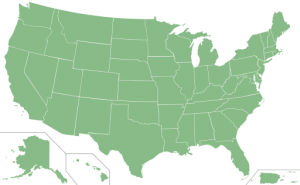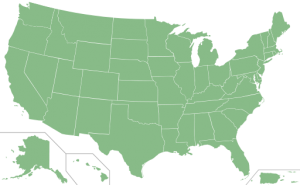There are fifty nifty United States…but who might be the 51st state? We don’t know, of course, but here are some real possibilities.

Washington, D.C.? The Founding Fathers thought it best, during the creation of the country, to make the seat of power separate from any state, to prevent any conflict of interest regarding state law vs. federal law. The movement for D.C. statehood picked up in 1980, when citizens approved a plan (and a constitution) to become a state called New Columbia—it failed because not enough of the states in the Union ratified the measure. A rallying anti-British protest cry before and during the American Revolution was “no taxation without representation.” Statehood advocates in the nation’s capital city drop the “no”—because they pay federal income tax and have no representation in Congress. There’s still a strong movement in D.C. for statehood, or at the very least, joining up with adjacent Maryland or Virginia.
North Colorado? The newest entrant in the 51st State Sweepstakes. In June 2013, commissioners from 17 counties in northeastern Colorado announced a plan to join together to separate from the rest of the state to form a new one. It would be the 42nd largest state in the country by population (and would include the major cities of Boulder and Fort Collins). The impetus of the movement began in Weld County, which has a wealthy reserve of oil and natural gas, and produces more revenue in those resources than it gets back in state services. Residents and politicians in the region are also generally more conservative than elsewhere in Colorado—secession talks began when the Colorado state legislature passed strict livestock treatment and gun control laws.








